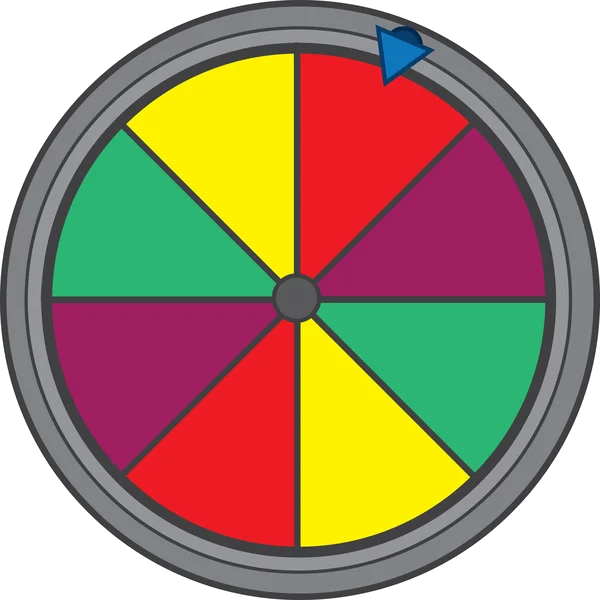Elements of Chance

The Role (Roll?) of Chance in Games
Delaying or Preventing Solvability
A game is solvable if the entire possibility space is known ahead of time and can be exploited such that a specific player, playing correctly can always win (or draw). Once solved, a game loses the fun: the uncertain outcome, and struggle toward a goal. Something must be done to keep the game "fresh".
- Random elements prevents us from mastering the game.
- The same exact decisions may lead to different outcomes.
Making Play "Competitive" for All Players
If all games were all about skill (like Chess), the strongest player would always win. The weaker player simply gets up and walks away determined to never play the game again.
Random elements offer an advantage and occasionally allow a less experienced player to win and keep all players interested for longer in two ways:
- There is always the chance of victory.
- The sting of defeat is lessened by blaming bad luck.
Increasing Variety
Games with no random elements always start exactly the same, and patterns emerge.
- When a random element is introduced, players must cope with a wider variety of situations.
Adding random elements in the right ways can increase the variety of a player's experience, thus increasing the replay value of a game.
Creating Dramatic Moments
When a player carefully crafts a strategy and then has to depend on the roll the dice (or what have you) to see if his plan succeeds, that moment of truth can be deliciously tense.
- Even without strategy, watching a random process play out can be extremely compelling in the right circumstances.
The level of excitement or tension created by chance increases in direct proportion to how much one has riding on the results.
Enhancing Decision Making
The essence of most games is the decisions that the players make. In a pure strategy game, players have complete information and know the exact outcome of every move that they make. Since all variables are known, some decisions aren't particularly exciting.
-
When random elements exist in a game, there is no longer a strategy that is always right.
-
A player thus analyses the different moves: their relative risks and benefits, and weighs them with respect to their perceived position in the game.
Since there are unknown elements, the decisions become more complicated and thus more compelling.
Mechanics of Chance
Dice
Rolling a single die creates a random number between 1 and the number of faces on the die, with each number having an equal chance of being rolled.
-
We write to refer to equal dice, each with sides.
-
With a each value has an equal chance; Rolling a single die is as random as you can get.
-
Rolling multiple dice and adding them together, the result is no longer equally random.
-
The numbers in the middle are rolled more frequently while the numbers at the extreme ends are rolled only rarely.
-
The frequency of rolls becomes similar to a "bell curve."
-
-
More dice, less randomness (the center results are more probable).
-
More faces, more randomness (the results range increases).
With dice, previous results do not influence future ones.
- Gamblers often ignore this fact and assume that the dice are "hot" or "cold," a fallacy that game designers cannot afford to make.
Cards
Cards are wonderfully versatile game elements. Cards can be:
-
Shuffled, randomizing their order.
-
Played face-down on the table, making their information hidden from all players.
-
Dealt to players who can only look at their own cards and no one else's, giving each player privileged information.
-
Used as resources, either by being kept in a hand, in a pile, or played in an area in front of an individual player.
-
Used to track game information without adding randomness.
Since there is a finite number of cards included with any game, revealing a card affects the probability of other cards. The probabilities are reset when all cards are collected and reshuffled.
Pseudo-Random Number Generators
A pseudo-random number is a number generated by a computer that is technically not random, but that is close enough for the purposes of most games.
-
Pseudo-random numbers can be of every type imaginable, making them extremely versatile if a designer wants to include defined amounts of chance to a game.
-
For example
1 + randi() % 6simulates a .
Care must be taken to ensure that the numbers generated are sufficiently random.
Hidden Information
When non-random information is concealed from the players, it is still random from the player's perspective.
-
Even without any other randomness, the uncertainty of how best to respond to the unknown threats creates random dynamics.
-
When hidden information is also random, there is the danger of the player becoming confused or frustrated.
Players should be able to understand the consequences of their actions and be able to form some degree of strategy that takes into account the random elements of the game; If the systems are hidden from them, their task of understanding the game is much more difficult.
Most other forms of randomness are variants of the above.
| Spinner | Dreidel |
|---|---|
 |  |
- Spinners and dreidels behave just like dice.
- Flipping a coin is .
- Cardboard tiles drawn from a bag are similar to cards.
All Randomness Is Not Created Equal
Is Poker a game of luck, or a game of skill?
Both are present. Which dominates the game? It depends on how many hands are played:
-
For small number of hands, luck dominates because one player will have more "good games".
-
For large number of hands, each player ends up with about the same number of "good hands".
- There, the advantage goes to who can maximize the money he earns from each winning hand — The game shifts to a game of skill.
Unlike a pure random game, in one with measured randomness:
-
The nature of the random elements are known and can be planed by the players.
-
Each individual hank, spin, roll, etc. can be random, but with a large number of them, the randomness decreases.
Completely Random Games
Most games have at least some small component of skill.
-
Two general kinds of game involve pure chance: Children's games and Gambling games.
-
Some children's or gambling games also involve skill.
-
But if you find a pure chance game is is probably one of these two types.
Children's Games
Young children have not developed the cognitive skills necessary to understand complex decision-making in more strategic games.
-
They enjoy the games of pure luck—watching what happens as the random elements collide.
-
Many children will attribute this to their own "skill" in rolling dice or selecting the right cards.
-
In these games, the decision making is rather limited. You do what the game tells you to do based on the random outcome.
-
Luck games that appeal to children tend to have a level of building tension that is resolved by a random event.
-
They also allow sudden changes of fortune.
-
Also allow the possibility of always coming from behind and winning so that the end result is never certain.
Gambling Games
The defining mechanic of gambling games is that real money is won and lost in the process.
-
Without money at stake, pure-luck gambling games quickly lose their appeal.
-
Most gambling games, even those that are pure chance, still offer choices.
-
The element of choice gives players the illusion of control, since different choices lead to different outcomes.